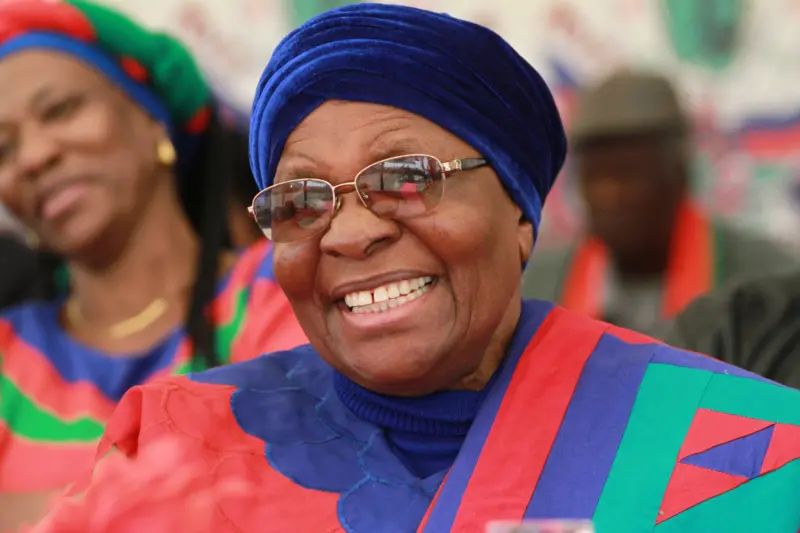Netumbo Nandi-Ndaitwah, Namibia’s Vice President, could become the nation’s first female president if she wins the highly anticipated presidential election. Her potential victory would mark a historic milestone for the country and for her party, the South West Africa People’s Organization (SWAPO), which has governed Namibia since its independence from apartheid rule in 1990.
More than 1.4 million voters—nearly half the population—have registered to participate in the election, where 15 political parties will compete for the presidency and seats in the National Assembly. Early results from special polls, including votes from overseas missions and security forces, indicate that Nandi-Ndaitwah and SWAPO are in a favorable position, according to the Electoral Commission of Namibia.
A challenged legacy
Despite its liberation credentials, SWAPO’s dominance has waned. In the 2019 elections, the party lost its two-thirds majority in the National Assembly for the first time since 1994, largely due to public outrage over corruption scandals, including a high-profile case involving money laundering in the fishing industry. The scandal led to the arrest and conviction of two cabinet ministers, shaking public confidence.
Henning Melber, a political analyst and professor at the University of Pretoria, warned that SWAPO must learn from its 2019 losses. “The process of erosion of legitimacy as a former liberation movement has advanced too much,” Melber said. He emphasized that younger voters, often referred to as “born-frees” because they were born after Namibia’s liberation, prioritize effective governance over historical loyalty.
“There is no way back to regain such dominance,” Melber added, noting that SWAPO faces the same challenges as other former liberation movements in Africa, such as South Africa’s African National Congress, which recently lost its parliamentary majority after 30 years in power.
Campaign promises and criticism
Nandi-Ndaitwah, 72, has made job creation a central focus of her campaign, pledging to invest 85 billion Namibian dollars (approximately $4.7 billion) over the next five years to create 500,000 jobs. Critics, however, have questioned the feasibility of her plan, given Namibia’s current economic constraints and youth unemployment rate of 20%.
She has also prioritized issues affecting women, including reproductive rights, healthcare, and equal pay. If elected, Nandi-Ndaitwah would join a distinguished group of female African leaders, including Liberia’s Ellen Johnson Sirleaf and Malawi’s Joyce Banda.
Erika Thomas, a political science lecturer at the University of Namibia, said Nandi-Ndaitwah’s success would depend on her commitment to transparency and accountability. “She must push for policies that increase women’s participation in politics and leadership,” Thomas said.
A shifting political landscape
SWAPO’s main challengers include the Independent Patriots for Change, led by former dentist Panduleni Itula, and the Affirmative Repositioning party, headed by university professor Job Amupanda. Both opposition parties have gained traction with younger voters by focusing on economic reform and anti-corruption measures.
This election is part of a broader trend in southern Africa, where long-dominant parties are losing ground. South Africa’s ANC recently lost its parliamentary majority for the first time in three decades, and Botswana’s Democratic Party was ousted after 58 years in power.
Meanwhile, ongoing protests in Mozambique over contested election results have resulted in at least 30 deaths, underscoring the volatility in the region.
As Namibia prepares to head to the polls, Nandi-Ndaitwah’s candidacy represents both a historic opportunity and a test of SWAPO’s ability to adapt to a changing political landscape. The election’s outcome will determine whether Namibia’s electorate is ready to embrace new leadership or will remain loyal to the party that led it to independence.
Namibia poised to elect first female leader






